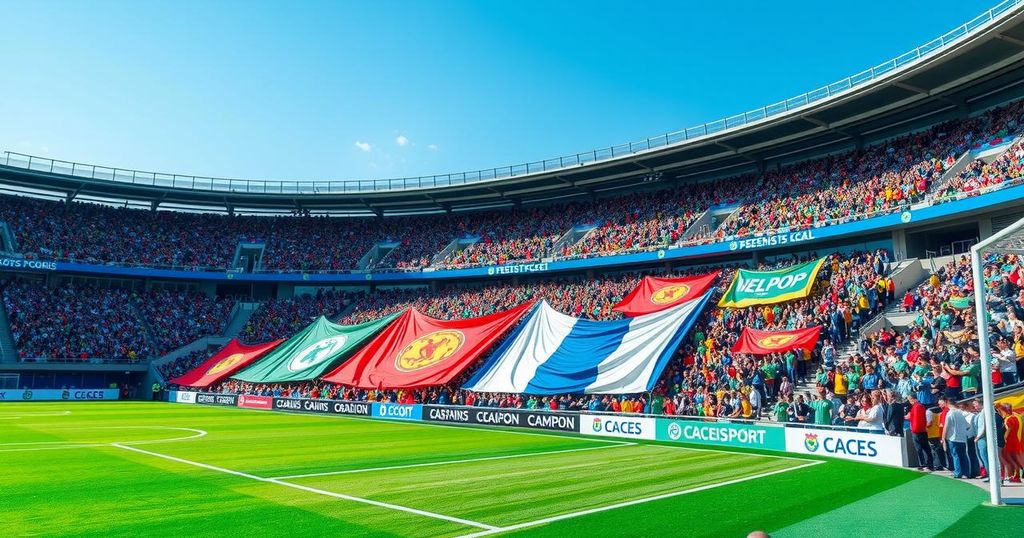PSG, Bayern Munich, and Arsenal face scrutiny over their sponsorship with the Rwanda Development Board amid conflict in the DRC. A growing petition urges clubs to sever ties due to Rwanda’s alleged military support to the M23 group in the ongoing violence. As Champions League matches continue, discussions regarding the ethical implications of these partnerships intensify, alongside appeals from human rights groups.
The sponsorship agreements involving the Rwanda Development Board (RDB) and prominent football clubs, including Paris Saint-Germain (PSG), Bayern Munich, and Arsenal, have recently come under scrutiny due to the ongoing conflict in the eastern Democratic Republic of Congo (DRC). As the Champions League progresses, with PSG, Bayern, and Arsenal advancing to the quarter-finals, the visibility of RDB’s “Visit Rwanda” logo is increasingly controversial.
PSG achieved a notable victory against Liverpool in a penalty shootout, while Bayern emphatically defeated Bayer Leverkusen and Arsenal outperformed PSV Eindhoven in significant aggregate victories. PSG will now face Aston Villa, Bayern will compete against Inter Milan, and Arsenal is set to clash with Real Madrid in the knockout stage.
The connection to RDB is marred by accusations regarding Rwanda’s support for the M23 group, which is in conflict with the Congolese military. Human rights organizations and the United Nations assert they possess evidence of Rwanda’s military involvement in support of M23, which continues to a rise in violence and humanitarian concerns in affected regions of the DRC.
In response, European campaigners, including Jordan Madiande, have initiated petitions urging these clubs to terminate their associations with RDB, particularly amid growing advocacy for justice and accountability in the region. Madiande expressed that PSG’s ethical standing is crucial in this situation and that maintaining relations with RDB would imply ignoring serious humanitarian issues.
Arsenal’s sponsorship with RDB commenced in May 2018 and includes multiple platforms for visibility, whereas PSG’s contract, which began in 2019, was renewed in May 2023 but is set to conclude in 2025. Madiande’s petition, which has garnered 73,000 signatures, highlights the conflict’s significance and calls for an evaluation of these sponsorships in light of violence plaguing the DRC.
The DRC’s foreign affairs minister, Thérèse Kayikwamba Wagner, has also sought formal reviews of such contracts from these football organizations, underscoring the direct responsibility attributed to Rwanda amidst escalating violence. The continuation of these sponsorship deals raises questions about sports organizations’ roles in upholding human rights and geopolitics.
As Rwanda seeks to enhance its global image through partnerships in sports, including its bid for a Formula 1 grand prix and hosting the World Cycling Championships, critics argue that such efforts serve to distract from human rights abuses. As the situation evolves, stakeholders await PSG’s decision on renewing the sponsorship contract, while Madiande reflects the sentiments of many fans regarding the imperative of aligning organizational values with societal ethics.
In conclusion, the ongoing scrutiny of RDB’s sponsorship deals with PSG, Bayern Munich, and Arsenal emphasizes the intersection of sports and politics in contemporary contexts. The increasing number of petitions from fans and calls for a reassessment of these contracts are reflective of a growing awareness regarding the ethical responsibilities of these clubs. As crucial matches unfold in the Champions League, the implications of these sponsorships on human rights and geopolitical matters continue to resonate within the broader international community.
Original Source: www.rfi.fr






